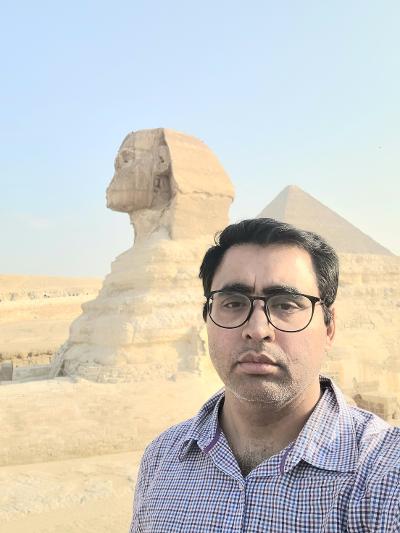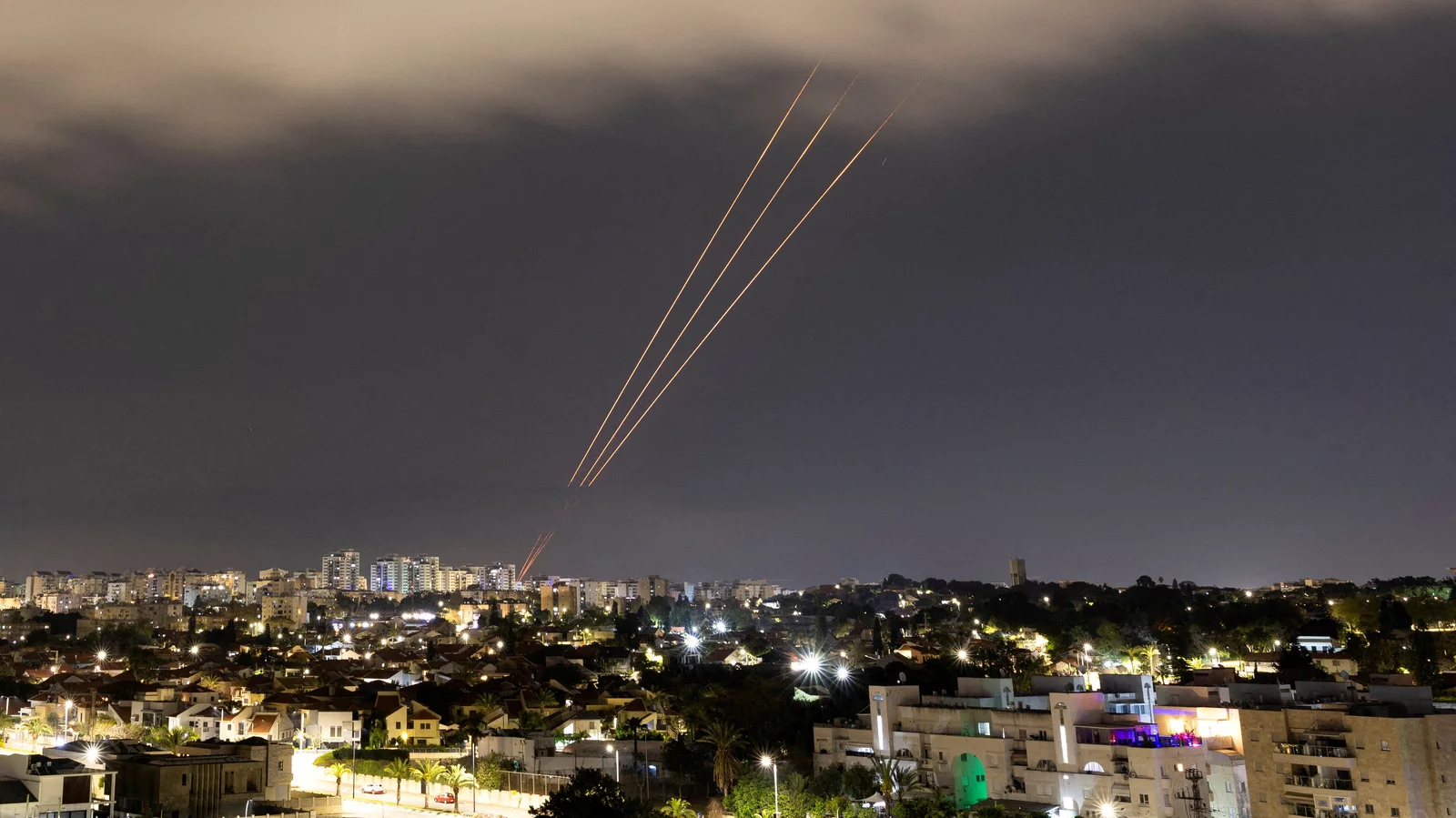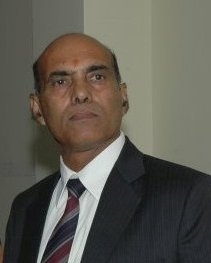Brigadier General Mohammad Reza Zahedi, a senior commander in the elite Quds Force of Iran’s Revolutionary Guard Corps (IRGC), and his deputy
EDUCATION FOR THE GLOBAL VILLAGE. By Dr. Stephen Gill. Canada.

As a result of the airways and telecommunications the world has shrunk to the size of a village. Everywhere in this village the pulse of change is beating much faster than ever before. It is beating in the economic, political and social as well as re
Modern education has shut humans from their fellow-beings. It does not teach how to adjust and live in society. It is based on the idea of specialization. It destroys the love for learning when students are compelled to work for awards. Human being is the centre of all knowledge. But educational institutions, particularly those for higher learning, have reached the apex of specialization, ignoring the centre. The universities have built the pyramids of knowledge on the ground of greed and survival of the fittest. This type of knowledge has poisoned the environment with jealousy, hatred and hunger for power. Its fruits are visible in the form of restlessness and the armament of nations.
This change is caused by science that has given a power to humans that they do not know how to handle. The main problem is how to deal with the risk of self-destruction and how to protect humans and secure a lasting peace. Humans have developed unprecedented powers that have endangered their safety and security. The education that was acceptable for ages is not capable of solving this problem. The traditional system of education is not equipped to answer questions about peace, to promote it and to stop wars. Rather it has produced serious and deep problems for survival on every level-- individual, collective and planetary. The economic growth that has been caused by science has been accompanied by pollution. Material progress is at the cost of environmental deterioration. This so-called progress pollutes the air we breathe, the water we drink and the food we eat.
Under the present educational system, citizens learn national loyalties, because national institutions and leaders teach students patriotic feelings and tendencies, although they live in a world that has been reduced to a global village. There are international agreements and treaties to avoid war, but the citizens have no international loyalties. Politicians, administrators, educators and scientists, the products of the modern system, are trained to render services to protect the life and property of the people of their respective nations, which are sovereign. When many governments become sovereign in themselves, with no authority to control them and when all the governments start developing their demonic muscles to give security to their people from imaginary or even real foes, the natural outcome is war and waste. When so many sovereign and independent countries, fully armed, become neighbours in the global village, clashes are inevitable. To avoid this situation, individuals and nations have to be educated and disciplined so that they may not pose perils to other people and nations.
The dove of peace has been seriously injured by national pride and love, which ought to be broadened to embrace global loyalty and thinking. There is use for neither national prides nor cultural heritages if the world comes to an end. On the contrary, they will be retained in a healthy shape in the absence of international time and money-wasting conflicts. In the past the worst types of wars were waged in the name of religion and patriotism; they are being waged even today.
Modern education has created a serious hindrance to ushering in an age of peace in which humans will live with dignity and without fear. Technocrats or scientists believe that they can change the world for the better. They have been proven wrong. Their discoveries have and will be misused. Their advancements, meant to give comfort to humankind, have brought tension, anxiety and insecurity, resulting in diseases like cancer and heart troubles and also the break up of families and the close ties between parents and children.
It is not the achievements of the scientists that can change the world; rather, only humans can do it. Therefore, the world needs the institutions that can make humans aware of this fact to pave the way for a better and a saner globe. The needs of the new world order will be met by a system of education that would emphasize global awareness and peace and the extinction of borders which would make defence budgets unnecessary. This would result in the saving of billions of dollars to use for the irrigation of deserts and to improve the quality of life. A new approach to education will broaden the responsibilities of students to the international level.
The teaching profession has failed to prepare our students for the nuclear age because human history never had the problems, which we have now. It is for the first time that humans have become capable not only of exterminating themselves with their own genocidal technology but also of rendering our planet incapable of producing life for a long time. This situation is one of the greatest absurdities. Educational institutions are not doing much to address this predicament as compassionate scholars and thinkers. Any talk of nuclear weapons causes despair and hopelessness in young people, mainly because our teachers are not trained to convey the features of the age. When politicians and scientists talk of the destructive aspect of nuclear weapons, they talk in terms of megatons and such phrases that produce a sedative affect on the listeners. They are incapable of moving or mobilizing public opinion because they talk as if they were referring to bows and arrows.
It would be dangerous to leave everything to our politicians to make decisions for us. Their record is depressing and deplorable. We cannot let them take human life in their hands. This responsibility cannot be delegated to specialists, military technocrats and commercial enterprises. What humans want for themselves and for their children and their society must be the result of their own reflections and actions. Educational institutions and other organizations provide the platform for this purpose.
Scientists generally do not think in terms of human consequences of their work. As professionals, they do not want to make such connections. Albert Einstein was right when he said that nuclear energy changes everything except consciousness. It is the job of education to provide this consciousness.
It would also be dangerous to be lulled into believing that the threat of nuclear holocaust has disappeared. It has not. The world has the same number of weapons as it had a few years ago when the danger was at its peak. The relations among the nuclear powers are encouraging, but the threat has not disappeared as yet. An awful amount of nuclear weapons still exist. Besides, the superpowers are still working on producing more sophisticated engines of destruction.
Nearly every nation in the world has some sort of institution where the art of war is studied. People are honoured for killing others in war. Governments run academies to prepare citizens for war. As per one estimate, more than seventy-five million people in the world are employed by armed forces, military research and defence industries. Millions more, including their families, are largely dependent for their daily bread on the defence budgets of their countries. The most talented and skilled citizens have been and are still being bought by the war-oriented industries.
The sunrays of education would enlighten the world population and would-be policy-makers to see that the universe is still divided into broad camps of weak and powerful--- there are nations that are financially and militarily still weak and some are still strong. However, the weak nations are no longer that weak and the powerful are not entirely powerful. The use of force under these circumstances is not free from grave consequences.
Education for the global village or world citizenship does not mean the disappearance of national languages and cultures. In light of the history of the former USSR, France, Switzerland and India, it turns out to be a lame excuse because the central government would give rights and freedom, even more, to indigenous cultures.
Though late, considering the long and tiresome process, still children and adults can be prepared for citizenship of the global village. It should be started at an early age to ensure safety to their future. It must begin at home by their parents by promoting a new world order, a new way of thinking, a world government, instead of national governments. Peace education should play the same part and with the same force that was played by the educational system after the invention of the printing press.
It is important that every city school board, university, small town volunteer organization, and international group work for a better world. Every individual should be actively interested in the issues that are the focal point of discussion in the media and among the superpowers because those issues affect his or her life. Workshops, seminars, lectures and discussion groups must be formed and proper curricula be drafted for students. Formal education ought to be challenged to include also peace projects in the courses at school, college and university levels.
Even the teachers themselves should be convinced of the new approaches to peace through education. Students must be provided with facts and tools to analyse the dangers to our planet. Furthermore, they must be given opportunities to discuss the type of world they would like to inherit. Whenever there is any discussion about nuclear weapons, there should also be a vision presented to the participants about international law and non-violent means to settle disputes. Otherwise, students will be simply despairing. Emphasis should be on the roots of war and the forces that impel nations to go to war, or even to make preparations for war. Students should also be made aware of the psychological climate that leads nations to armed conflict.
The courses should cover the areas of economic justice for all, human rights, respect for the environment, armament control, disarmament, the dangers of nuclearization of weapons and industries, the evils of colonialism, violence, the possibilities of peace, the settlement of disputes, the philosophy and methodology of non-violence, The United Nations, and cooperative efforts to achieve goals.
There are several other ways through which international understanding can be improved to create an atmosphere for a peaceful world. One of them is educational and cultural exchanges among nations. The Fulbright International Exchange in the United States is one of them. The Fulbright Act that established the program was introduced into Congress in September of 1945. There are academic exchanges between the US and over one hundred and thirty nations. It was to create a cordial atmosphere for international peace and understanding by developing in the participants an awareness that issues of war and peace should be addressed through cooperation. Senator Fulbright, himself a Rhodes scholar, knew the benefits from such international educational exchanges in reducing hatred and prejudices among the peoples of the world.
Besides, some vocational groups are taking initiatives for a new world, free of war. They are mobilizing public opinion. Included in this group are the Pugwash Movement; International Physicians for the Prevention of Nuclear War; Scientists for Peace; and Lawyers for Social Responsibility. Some trade unions are also increasingly interested in promoting disarmament. The International Council for Adult Education is working through its network in several countries.
Soon after the Second World War, several colleges and universities in the United States incorporated the study of peace and war in their curricula. The movement against the Vietnam War promoted these studies. Colgate, Syracuse and Kent universities, among others, initiated these studies in the early 1970's. In the 1980's, the nuclear disarmament movement and growing concern over the arms race prompted several schools and colleges to add such courses for their students. At present, there must be over 250 institutions in the United States that offer such major and minor courses.
In Canada, around fifty universities offer one or two courses on peace related subjects. These courses are offered in different departments. Some small institutions including The Peace Research Institute; Canadian Peace Research; Peace Research, a journal; and Press For Conversion, a publication devoted to the economic conversion of military factories and bases to socially useful and environmentally sound purposes, are doing a good job. The Canadian parliament has established Canadian Institute for International Peace and Security, which is being criticized for not playing its role as an institution for peace in the real sense.
However, the peace movements are gaining momentum though still at a slow pace. We are still far away from the goal. The peace movement does not represent even half a percent of the total number of students, whereas peace is the number one priority. In some countries, the situation is worse. Most of the workers for the new world order are volunteers. In most nations, peace movements have no access to media. Their work is carried on mostly by committed souls. The global village needs many more institutions and committed souls to achieve the noble goal of peace through peaceful means.
You May Also Like
Iran will have to remember that - the Iranian revolution of 1979 was not merely a Shia revolution but Islamic revolution (ii)- Being worshipers of
IF India gives-up “One China policy” then it will also impact the issues of Xinjiang, Hong Kong and Taiwan which all are claimed

On demand of our readers, I have decided to release E-Book version of "Trial of Pakistani Christian Nation" on website of PCP which can also be viewed on website of Pakistan Christian Congress www.pakistanchristiancongress.org . You can read chapter wise by clicking tab on left handside of PDF format of E-Book.







